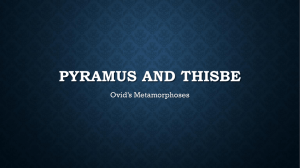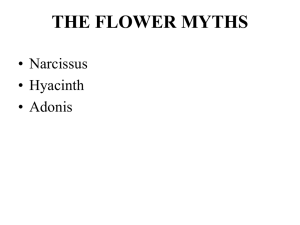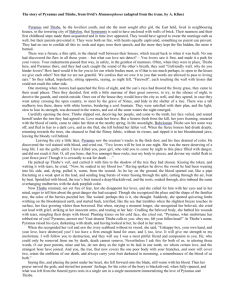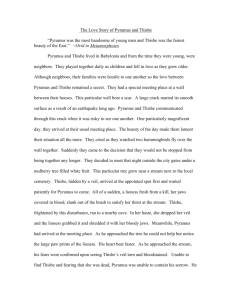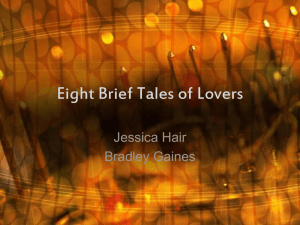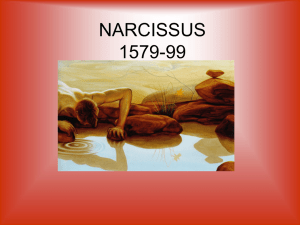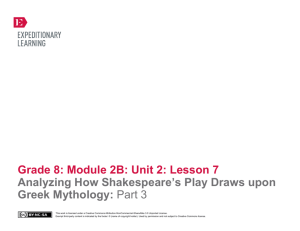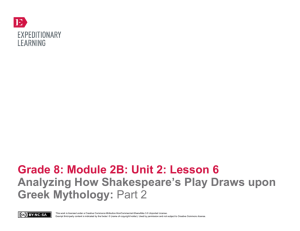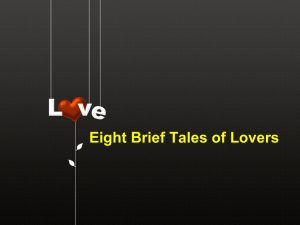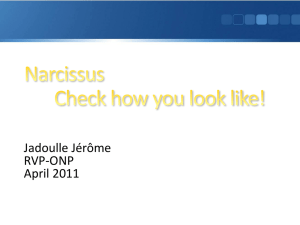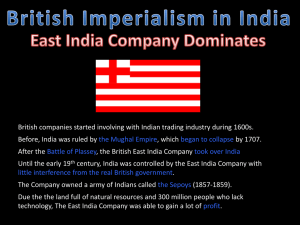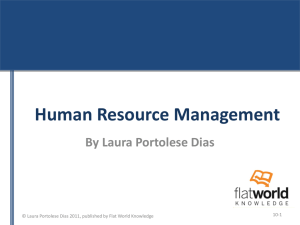Mythological Allusions in Romeo and Juliet
advertisement
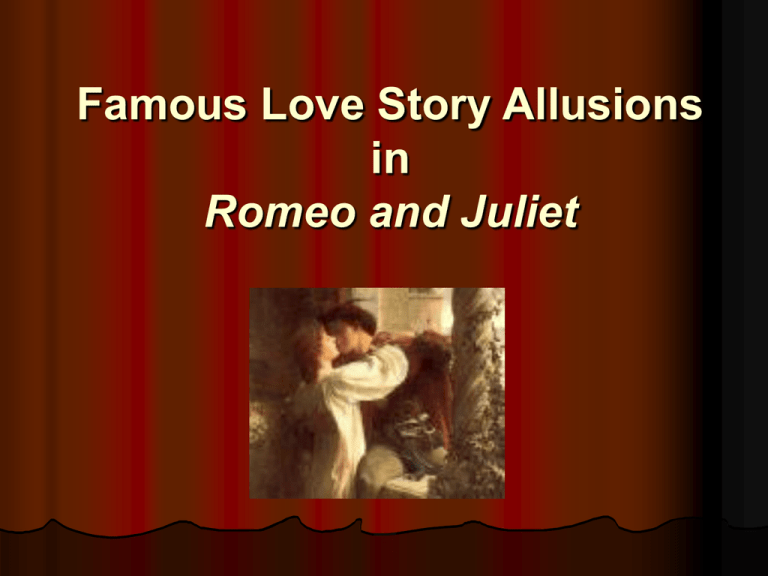
Famous Love Story Allusions in Romeo and Juliet A Few Cupid Allusions “Well, in that hit you miss. She’ll not be hit with Cupid’s arrow…From Love’s week childish bow she lives uncharmed (Romeo: I, i, 209-212). “You are a lover. Borrow Cupid’s wings and soar with them…” (Mercutio: I, iv, 17 & 18). Eros/Cupid--God of Love Eros=Greek Root meaning physical love Aphrodite’s son Greeks depicted him as a young man; Romans depicted as a young boy Sometimes considered blind (Hence the saying, “Love is blind.”) Shot special “love” arrows-gold = true love; lead = lust If shot with his arrow, you’d fall in love with the first person you saw QuickTime™ and a TIFF (Uncompressed) decompressor are needed to see this picture. King Cophetua and the Beggar Maid: (Mercutio: II, i, 14). Ballad from the Middle Ages King Cophetua was a ruler in Africa Was not interested in women Fell in love at first sight with a beggar lady dressed in gray (some say Cupid shot him) Said that if he couldn’t have her as his wife he would die Married her despite the poverty Some stories say it ended happily others say it didn’t Echo and Narcissus “Bondage is hoarse and may not speak aloud, Else would I tear the cave where Echo lies” (Juliet: II, ii, 161 & 162 ) Echo--nymph who could only repeat what others said because of a curse from Hera Narcissus--beautiful selfish nymph who vowed to never fall in love; Echo loved him Narcissus fell in love with his own reflection was dying; later turned into a flower Echo wasted away in a cave for love of Narcissus Allusions from Mercutio’s Speech Act 2 Scene 4 Without his roe, like a dried herring: flesh, flesh, how art thou fishified! Now is he for the numbers that Petrarch flowed in: Laura to his lady was but a kitchen-wench; marry, she had a better love to be-rhyme her; Dido a dowdy; Cleopatra a gipsy; Helen and Hero hildings and harlots; Thisbe a grey eye or so, but not to the purpose. (Mercutio: Romeo and Juliet, II, iv, 38-44.) Petrarch and Laura QuickTime™ and a TIFF (Uncompressed) decompressor are needed to see this picture. Franscico Petrarch lived in the 1300s Father of Humanistic Philosophy and his passion for reading and writing helped end the Dark Ages He supposedly fell in love with Laura de Noves at first sight, but she was already married. For her, he wrote numerous poems and is considered to have perfected the sonnet (a poem form that Shakespeare used frequently). His love, Laura, possibly died from the plague which also took most of his family and friend’s lives. When asked whether his poems were about Laura De Noves, he denied it. QuickTime™ and a TIFF (Uncompressed) decompressor are needed to see this picture. Dido and Aeneas Dido, also called Elissa, was princess of Tyre in Phoenicia She left Tyre and founded. her own city, Cathrage. Aeneas, a hero from the Trojan war, landed on her shores. She treated him well and fell in love with him. He spurned her love and left her. She is said to either have burned herself alive, or killed herself with Aeneas’ sword. Dido preparing to kill herself with Aeneas’ sword Marc Antony and Cleopatra Queen of Egypt (but was actually Greek) Married to Julius Caesar and had a child with him After Caesar’s death, Marc Antony went to Egypt, fell in love with her and divorced his wife to marry her They made plans to conquer Rome Hearing a false report that Cleopatra was dead, Antony fell on his sword Cleopatra had a asp (snake) bite her when she received the news of Antony’s death Helen Who Launched a 1000 Ships: Cause of Trojan War Quic kTime™ and a TIFF ( Unc ompres s ed) dec ompres s or are needed to s ee this pic tur e. Helen was the most beautiful mortal woman Married to King Menelaus of Sparta Paris, Prince of Troy, met her at a party in Sparta and fell in love with her Paris kidnapped her or she went willingly to Troy The Greeks spent 10 years during the Trojan War trying to get her back Finally they did and killed most of the Trojans (Trojan War) Hero and Leander Hero lived as a priestess of Aphrodite in a secluded tower. Leander, who lived across the strait, saw her and fell in love with her. Every night he would swim the strait to stay with her. One night there was a horrible storm as he swam, and he drowned. When Hero found out Leander died, she threw herself from her tower into the ocean and died. Thisbe and Pyramus Young neighbors who fell in love Parents forbid the two of them from seeing each other. Would talk at night through the wall secretly Decided to sneak off to meet each other near a fountain Thisbe got there first and a lioness returning from a kill scared her off--she dropped her veil. Pyramus, seeing her veil and the bloody tracks of the lion, thought the lionness ate Thisbe. Blaming himself for her death--he stabbed himself. Thisbe went back later, saw Pyramus just before he died. She then stabbed herself. Their parents buried them in one tomb and planted a mulberry tree outside to represent their love and the blood that was spilt. Bibliography "Cophetua." Wikipedia. 02/25/08. Wikipedia. 14 Mar 2008 <http://en.wikipedia.org/wiki/King_Cophetua>. "Echo and Narcissus in Greek Mythology." Mythography. www.loggia.com. 14 Mar 2008 <http://www.loggia.com/myth/echo.html>. "Hero and Leander." Wikipedia. 02/25/08. Wikipedia. 14 Mar 2008 <http://en.wikipedia.org/wiki/Hero_and_Leander>. "Pyramus and Thisbe." Wikipedia. 02/26/08. Wikipedia. 14 Mar 2008 <http://en.wikipedia.org/wiki/Pyramus_and_Thisbe>. Sadlon, Peter. "Laura de Noves." Francesco Petrarch and Laura De Noves. 09/10/07. 14 Mar 2008 <http://petrarch.petersadlon.com/>.
